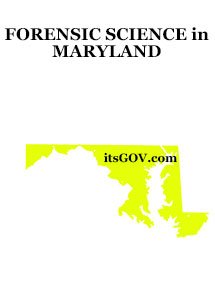Forensic Science
Forensic science combines science and investigation in order to aid and support the prosecution or defense in criminal and civil investigations. While the profession has been widely romanticized by various TV shows, make no mistake – this job is most likely different that you expect. In contrast with popular perception, this is a highly scientific role, which often involves detailed, painstaking work. Field duties are limited to a few areas of expertise, and most often than not a forensic scientist will spend his time in the lab.
If you made it this far, though, congratulations! You’re taking the first steps in joining a very rewarding profession and itsGOV is here to guide you through what you need to know and what you need to do to join a forensic science program in Colorado.
Depending on the type of forensic science practiced, different degrees and educational backgrounds may help a candidate get a job and excel in this field. Regarding formal education, requirements vary across jobs, but you should definitely have a solid background in mathematics, biology and chemistry.
The National Institute of Justice, a division of the U.S. Department of Justice, offers guidelines for model undergraduate and graduate forensic science degree programs. According to the American Academy of Forensic Science, strong programs should offer a curriculum that concentrates on scientific writing, laboratory skills, public speaking, and computer software application training.
Forensic Science Requirements in Colorado
The Colorado Forensic Services Section of the Colorado Bureau of Investigation is responsible for collecting, identifying, classifying and analyzing physical evidence related to criminal investigations. Forensic scientists working for this state agency are also responsible for testifying as expert witnesses in criminal court cases and providing expertise in areas such as handwriting, fingerprinting, and biochemistry.
The Colorado Forensic Services Section serves the State of Colorado, from Denver and Colorado Springs to Aurora, Boulder, Lakewood, and beyond. The forensic scientists of the Forensic Services Section may work through one of the state’s four crime laboratories:
- Denver Forensic Laboratory
- Durango Forensic Laboratory
- Grand Junction Forensic Laboratory
- Pueblo Forensic Laboratory
- Greely Forensic Laboratory
Forensic Science Training in Colorado
A bachelor’s degree in chemistry provides the framework for any career in forensic science, while a concentration in criminalistics provides the knowledge critical for working in a forensic laboratory. Common coursework in this type of degree program may include:
- General Chemistry I, II
- Analytical Chemistry
- Organic Chemistry I, II
- Instrumental Analysis
- Biochemistry
- Criminalistics I, II, III
- General Biology
- Introduction to Criminal Justice
- Probability and Statistics
- Introduction to Ethics
- College and General Physics
- Forensic Anthropology
Candidates for forensic scientist jobs in Colorado can learn more about the requirements of the Colorado Forensic Services Section through recent job postings.
Forensic scientists are responsible for the scientific analyses of physical evidence, which include laboratory techniques, methods, practices, and equipment. These professionals must conduct supervised chemical and biochemical analyses of evidence and interpret the results for felony investigators. They may also be called upon to assist in the preparation of court testimony and visit crimes scenes as to assist with the identification, collection, and preservation of physical evidence.
Entry-level forensic scientists perform entry-level professional forensic work while receiving on-the-job training.
Forensic Science Salary in Colorado
The Bureau of Labor Statistics (BLS) indicated that the 260 forensic science technicians employed in Colorado in 2012 made an average annual salary of $58,350. Experienced professionals in the top tenth percent of their field earned $77,820 on average.
The field of forensics is growing in Colorado. The availability of forensic scientist jobs is expected to increase by 2.3% a year in the ten year period leading up to 2022 according to Colorado’s Department of Labor and Employment.
This agency provided the average annual salary of forensic science technicians in 2012 in several metropolitan statistical areas of Colorado. Wages varied greatly in different areas:
- Boulder: $55,736
- Colorado Springs: $33,415
- Fort Collins: $60,188
While many forensic science technicians work in the lab, others work in the field meticulously documenting crime scene evidence. There are a diverse number of crime scene investigator (CSI) jobs. Some of these professionals document all of the evidence at crime scenes, while others specialize in things like the analysis of fingerprints or blood pattern sprays.
While a number of CSIs are sworn officers with forensic training, other CSI jobs are for civilians with positions such as lab technicians or crime scene technicians. Some of the CSI salaries in Colorado are available from state agencies. In Colorado Springs, the 2012 salary for a crime scene technician averaged $52,320 a year.
Forensic Science Schools and Colleges in Colorado
Bachelor’s Degree Programs in Colorado
| University | University of Colorado at Colorado Springs, Forensic Science Concentration B.A. |
| Duration | 24 months |
| Type | Full time, Part time |
| Tuition and fees | $23,283 per year |
| Program link |
Master’s Degree Programs in Colorado
There are currently no master’s programs in Colorado.




